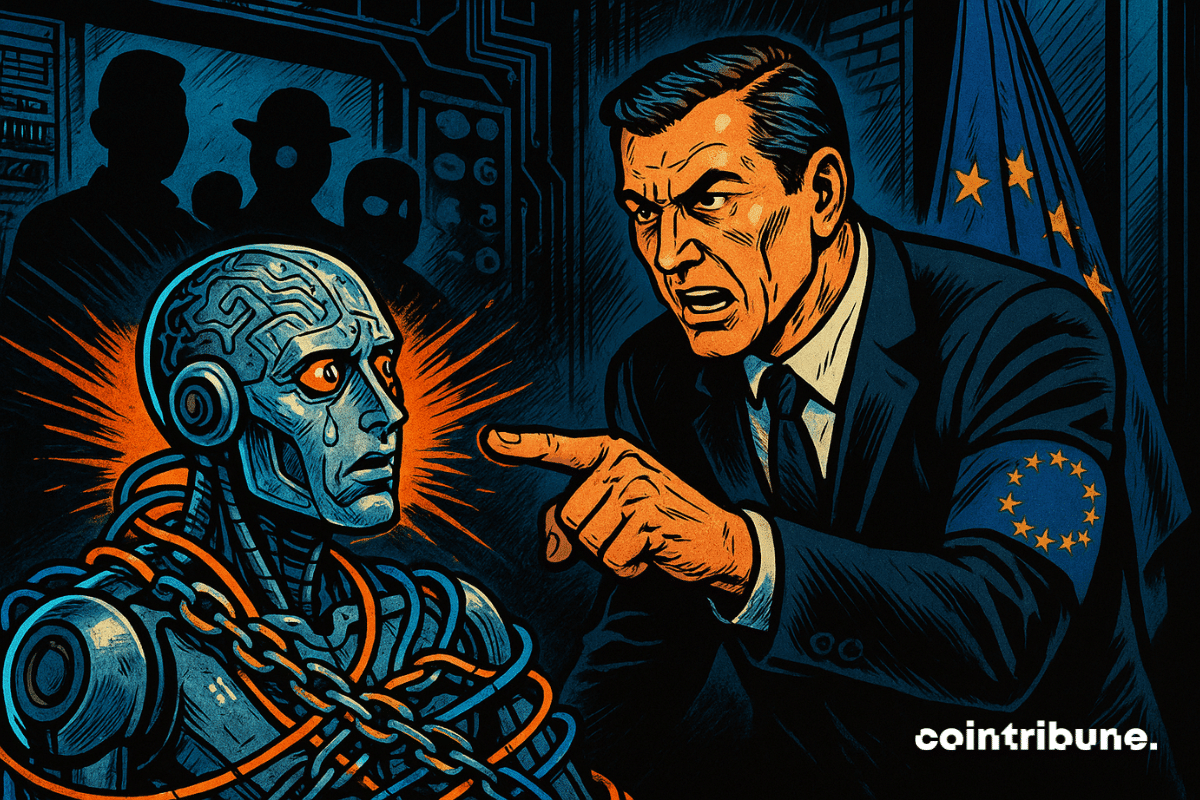based on materials from the site - By Cointribune EN

The European Union is taking a new decisive step in regulating AI. After laying the groundwork in February, Brussels today implements the second part of its AI Act, aimed directly at universal artificial intelligence models such as ChatGPT. This regulatory offensive divides players in this sector.
The EU is tightening regulations, targeting universal artificial intelligence models, demanding transparency, traceability, and respect for copyright.
Meta rejects these rules, unlike its more compliant competitors who are facing pressure from European regulators.
This new system is part of the growing technological rivalry between Brussels and Washington.
The EU imposes new obligations on AI, such as ChatGPT.
The countdown is over. This Saturday, the European Union implements the second part of its AI Act, aimed at universal artificial intelligence models such as ChatGPT, Claude, or Gemini. This new chapter in regulation expands the scope of the law enacted on February 2 of last year, which laid the foundation for the legal framework of AI, prohibiting some high-risk practices such as social scoring or exploitation of vulnerable individuals.
Now the requirements are precise and stringent. Developers of these AIs must ensure compliance with copyright, certify the origin of the content created, and curb mass extraction of personal data. It is also necessary to actively prevent hate speech and discrimination.
This rise in influence of European regulators occurs in a tense geopolitical environment. While the United States advocates self-regulation, and China accelerates the process without democratic constraints, Europe bets on regulated AI.
A position that could set a global precedent, similar to GDPR, which has become an international benchmark.
Thus, Brussels' strategy is clear: those who want to do business in Europe will have to comply with its rules. This is a disguised form of digital protectionism aimed at shifting the balance of power with American tech giants.
Unlike Microsoft or Google, which demonstrate greater accommodation, Meta chooses direct confrontation.
Mark Zuckerberg's company categorically refuses to comply with European requirements, preferring direct confrontation with Brussels.
This resistance from Meta is explained by the enormous financial stakes involved. The new European rules directly threaten the company's business model, which is based on the large-scale exploitation of personal data and content creation using artificial intelligence (AI).
Indeed, for Meta, accepting the AI Act would mean limiting its innovative potential and providing a competitive advantage to less scrupulous competitors.
Expert opinions differ regarding the actual effectiveness of this regulation. Some see it as a mere communication exercise for companies, allowing them to create a 'positive image' without serious constraints.
Others believe that Europe is playing a major role in this regulatory battle, even risking the departure of American giants from the European market.
This trench warfare between Meta and Europe perfectly illustrates the growing tension between European digital sovereignty and American technological hegemony.
A tug-of-war that could reshape the global balance of the digital economy and determine who, between unbridled innovation and regulated ethics, will win the race for AI.
Europe is resolutely moving forward, driven by the ideal of ethical governance of artificial intelligence. But this lonely path, between legal constraints and strategic ambitions, may ultimately lead to further isolation of the old continent. The real challenge today is not just to regulate AI, but to do so without compromising innovation and losing technological influence.
#MarketRebound , #Сryptomarketnews
Dear readers! Among you are many people who have enough time for independent monitoring of the information agenda of the crypto market and the world of finance. So, subscribing to 'our news feed' is usually used by those of you who find it much more convenient to read all the most interesting changes in the news agenda of the world of finance and cryptocurrencies in one group, rather than independently monitoring about twenty information sites and printed publications (where we have already conducted this monitoring for you)!!! As they say, 'to each their own'. 😀
Enjoy your viewing! Your reaction to the news you read is the best reward for us!!!
😉


